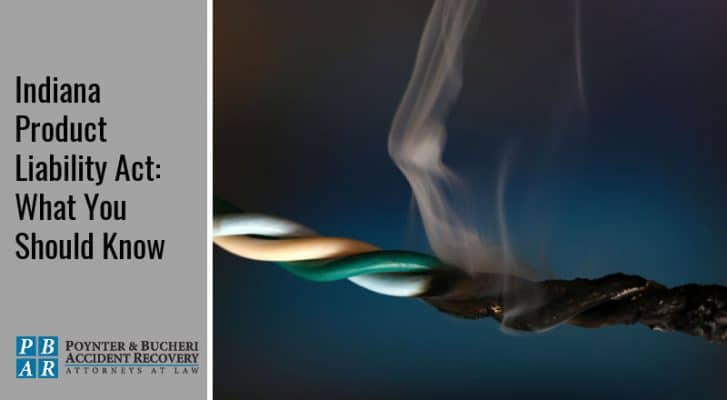
Indiana Product Liability Act: What You Should Know

Here’s what you’ll learn about the Indiana Product Liability Act from reading this article:
- What is considered a defective product in Indiana?
- When would I not have grounds to file a case?
- Do I have grounds to file a case?
Thousands of product liability lawsuits are filed each year in the United States. Some of them even make headlines.
You probably heard about the IKEA dressers that did not meet U.S. standards and tipped over — just last January, the parents of a toddler who was crushed to death by a falling IKEA dresser were given $46 million. Perhaps you heard about the $100,000 settlement Johnson & Johnson paid in October to 10,000 women who had developed ovarian cancer as a result of talcum powder use.
There are many such lawsuit-provoking products in the news: airbags, silicone breast implants, contaminated medications — the list goes on. Each state has clear laws and codes defining when manufacturers or sellers can be held liable and when they can’t. You may not have a national news-worthy case to file, but if you have been harmed or if a loved one has lost their life as a result of a product, you may have a case and should definitely consult an attorney.
Indiana’s Product Liability Act (Code 34-20-1-1) states that there is ground for action in the following cases: A defective product is one which causes “physical harm … to the user or consumer or to the user’s or consumer’s property.” One of the following conditions must be met in order for the manufacturer or seller to be held liable:
- A reasonable person would not foresee the problem with the product. (The hypothetical “reasonable person” behaves in a way that is legally appropriate.)
- The product causes unreasonable danger to those who use the product — as long as they use the product in a way that they are supposed to. For instance, it would not be the manufacturer’s fault if you struck your spouse with an iron: that is not what irons are designed to do! Likewise, it would not be the manufacturer’s fault if a person ingested a cleaning product that was clearly not meant for consumption. It would be the manufacturer’s fault if a design flaw or production error caused the brakes in your car to fail.
- The product has not been packaged with adequate warnings or doesn’t provide adequate instructions in the use of a product. For example, this may apply if you were harmed by taking two medications at the same time, and there was no warning or instruction to avoid interactions. Another example would be if you had a severe nut allergy and reacted after eating a pizza that didn’t have tree nuts in the list of ingredients (yes, that actually happened with a vegan Garden Pizza sold by Whole Foods Market).
According to Indiana code, it would not be the manufacturer’s or seller’s responsibility…
- If you knew that a product was defective and used it anyway.
- If you used the product in a way that it wasn’t designed for.
- If you altered the product and that alteration is what resulted in its being dangerous.
- If you file past the statute of limitations. The statute of limitations for product liability cases in Indiana is ten years from receiving the product or within two years of the harm, injury, or death occurring. This means that if you bought the product nine years ago and used it appropriately today, but a design flaw meant that you were injured, you still have two years from today to file even though that date would be past the original ten years. This provision is in place for cases where illness builds up over time or is not evident until much later, such as in cases of asbestos poisoning.
The personal injury attorneys at Poynter & Bucheri are experienced with product liability cases and with the Indiana Product Liability Act. Recently we won this product liability case:
PRODUCT LIABILITY
Our client was an employee who delivered office equipment. The company he worked for used a national car rental company to provide the delivery trucks. Client was unloading equipment when his finger was caught in the lift gate and amputated part of his finger. Poynter & Bucheri sued both the car rental company and the manufacturer of the lift gate. We retained an engineering expert and were able to successfully argue that that the lift gate was negligently designed and maintained and reached settlements with both defendants. For further details, please contact our office.
Poynter & Bucheri Accident Recovery – Indianapolis Personal Injury Attorneys
If you or a loved one has been injured physically or mentally by a person, product or company, you need to know your legal rights. Our personal injury attorneys are experienced with cases like yours and can evaluate what your case may be worth.
We will ensure that you are protected and compensated for your injuries and losses. Don’t hesitate — one of our experienced attorneys can assist you right away. Call 1-800-265-9881 for a free case review.
